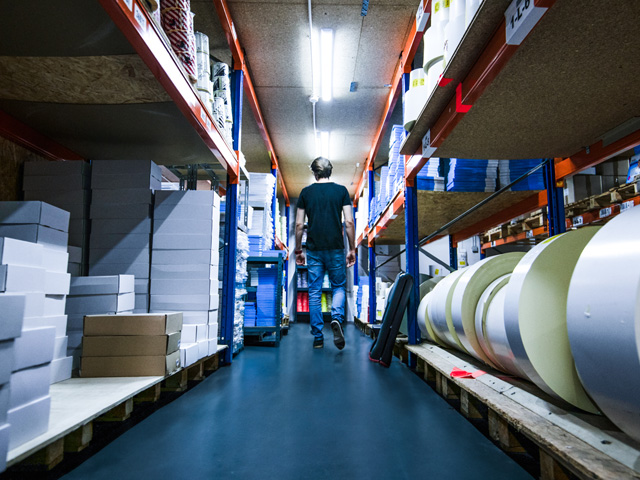Fashion and Textile Industry
Contact us (+48) 71 757 49 51

In the food industry, where precision, identification, and strict control are paramount, self-adhesive labels are an indispensable part of the process. In this article, we’ll explore six key applications of labels in the food industry that support production, distribution, and food safety.
Self-adhesive labels are an indispensable tool in the food industry. They help maintain safety, ensure compliance with regulations, inform consumers, and efficiently manage the production and distribution of food. Without them, it would be challenging to imagine the functioning of this dynamic sector of the economy.
Labels play an incredibly vital role in identifying and informing consumers about food products. They can contain information about ingredients, nutritional values, expiration dates, and much more. This is a crucial tool not only for manufacturers but also for consumers who base their purchasing decisions on this information.

The food industry must maintain rigorous control over its inventory. Labels, especially those with barcodes, make it easier to track products at every stage of production and distribution. They help determine where a product is stored, how long it has been stored, and when it should be used to maintain quality.

Food safety is a top priority in the food industry. Labels are used to mark products that may cause allergies or contain GMO ingredients. Moreover, labels must adhere to regulations regarding nutritional information, expiration dates, and other requirements to ensure that consumers receive accurate product information.

Given the growing concern for the environment, eco-friendly labels are becoming increasingly important. Information on labels about raw material sources, recycling, and a manufacturer’s eco-friendly practices helps consumers make more informed choices.
In the food industry, effective date management is crucial to avoid food waste and health hazards. Labels with production and expiration dates enable effective control of product status and rotation in warehouses and stores.
Labels are indispensable in food logistics and distribution. They allow for the identification of pallets, containers, and packaging, facilitating loading, unloading, and tracking the flow of products through the supply chain. This is a key element of efficient supply chain management.